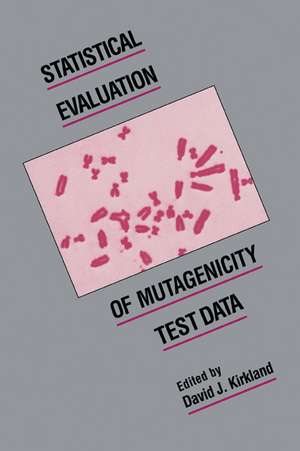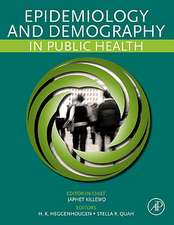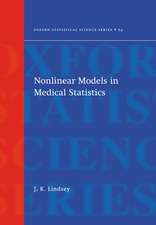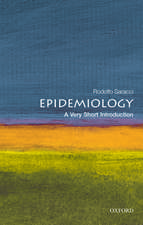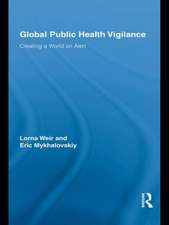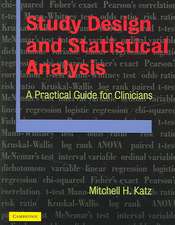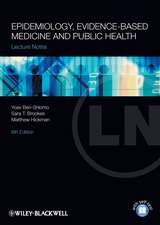Statistical Evaluation of Mutagenicity Test Data
Editat de David J. Kirklanden Limba Engleză Paperback – 2 ian 2008
| Toate formatele și edițiile | Preț | Express |
|---|---|---|
| Paperback (1) | 492.09 lei 6-8 săpt. | |
| Cambridge University Press – 2 ian 2008 | 492.09 lei 6-8 săpt. | |
| Hardback (1) | 1020.40 lei 6-8 săpt. | |
| Cambridge University Press – 6 dec 1989 | 1020.40 lei 6-8 săpt. |
Preț: 492.09 lei
Preț vechi: 518.00 lei
-5% Nou
Puncte Express: 738
Preț estimativ în valută:
94.17€ • 102.26$ • 79.10£
94.17€ • 102.26$ • 79.10£
Carte tipărită la comandă
Livrare economică 23 aprilie-07 mai
Preluare comenzi: 021 569.72.76
Specificații
ISBN-13: 9780521048149
ISBN-10: 0521048141
Pagini: 312
Ilustrații: 39 b/w illus.
Dimensiuni: 153 x 229 x 20 mm
Greutate: 0.41 kg
Ediția:1
Editura: Cambridge University Press
Colecția Cambridge University Press
Locul publicării:Cambridge, United Kingdom
ISBN-10: 0521048141
Pagini: 312
Ilustrații: 39 b/w illus.
Dimensiuni: 153 x 229 x 20 mm
Greutate: 0.41 kg
Ediția:1
Editura: Cambridge University Press
Colecția Cambridge University Press
Locul publicării:Cambridge, United Kingdom
Cuprins
Steering group; Contributors; Preface; List of abbreviations; 1. Statistics and genetic toxicology - setting the scene D. P. Lovell; 2. Analysis of data from microbial colony assays G. A. T. Mahon, M. H. L. Green, B. Middleton, I. de G. Mitchell, W. D. Robinson and D. J. Tweats (group leader); 3. Mammalian cell gene mutation assays based upon colony formation C. F. Arlett (group leader), D. M. Smith, G. M. Clarke, M. H. L. Green, J. Cole, D. B. McGregor and J. C. Asquith; 4. Statistical evaluation of bacterial/mammalian fluctuation tests W. D. Robinson, M. H. L. Green (group leader), J. Cole, M. J. R. Healy, R. C. Garner and D. Gatehouse; 5. Analysis of data from in vitro cytogenetic assays C. Richardson (group leader), D. A. Williams, J. A. Allen, G. Amphlett, D. O. Chanter and B. Phillips; 6. Statistical methods for sister chromatid exchange experiments D. Cooke, J. Allen, M. G. Clare, C. J. Doré and L. Henderson (group leader); 7. Statistical analysis of in vivo cytogenetic assays D. P. Lovell, D. Anderson (group leader), R. Albanese, G. E. Amphlett, G. Clare, R. Ferguson, M. Richold, D. G. Papworth and J. R. K. Savage; 8. Statistical methods for the dominant lethal assay D. O. Chanter, D. Anderson, A. Bateman, D. P. Lovell, A. K. Palmer, M. T. Stevens and M. Richold (group leader); 9. Statistical methods for the design and analysis of mutation experiments with the fruit fly Drosophila melanogaster R. D. Combes (group leader), J. Bootman, M. G. Ford, J. Hepworth and D. W. Salt; Appendices; Index.
Recenzii
"In summary, this is not a cook book for either statisticians or mutageniticists. This book is a bridge between the two disciplines. It will help the statisticians to understand the problems the mutageniticists encounter in their experiments and help the latter converse fluently with the former to effectively interpret the outcomes of their experiments. Both statisticians and genetic toxicologists will benefit tremendously from this book and should have it on their desks." Journal of Toxicology and Environmental Health
Descriere
This rigorous and practical account of the interpretation of mutagenicity test data draws upon the expertise of toxicologists and statisticians.
